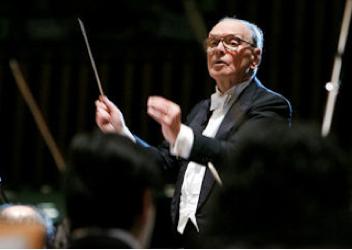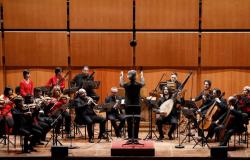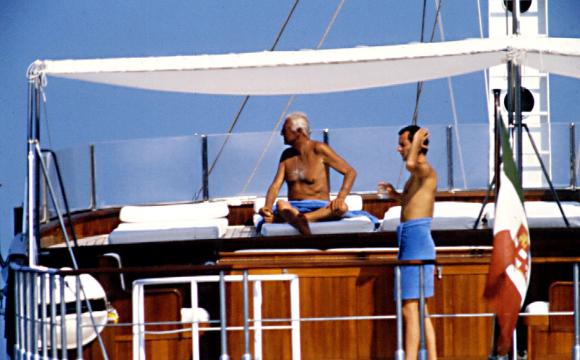Italian composer Ennio Morricone is to receive the Polar Music Prize, regarded as the “Nobel Prize” of the music world, on 30th August in Stockholm. The prize will be presented by King Carl XV1 Gustaf of Sweden. In the citation, the jury said,
“Ennio Morricone’s arrangements and compositions lift us to another plain of existence, making the mundane seems like dramatic scenes in full Cinemascope”.
They also said that Morricone’s music had influenced many rock, pop and classical composers.
The Icelandic singer Björk will also receive the prize, which is usually awarded to a pop artist and a classical composer. Morricone and Björk will receive 1 million Swedish kronor [$133,680] each.
Ennio Morricone was born in Rome in 1928, the son of a jazz musician. He entered the Conservatory at the age of 12 and completed his programme early. He composed several classical works before beginning to work on music for radio drama in the 1950s. During the same period, he played in a jazz band and began to arrange popular music.
RAI offered him a job in 1958 but he left it after one day because he was told that it was company policy not to broadcast music composed by employees. During the 1960s Morricone became an arranger at RCA, notably working with Mario Lanza. He composed the song, “Se telefonando”, which was a great success for Mina. He also worked with pop stars such as Gianni Morandi.
It was also in the 1960s that Morricone began composing film scores and his 1964 score for Sergio Leone’s “A Fistful of Dollars” made him an international household name. He went on to compose the scores for “For a Few Dollars More”, “The Good, the Bad and the Ugly” and “Once Upon a Time in the West”. Budget restrictions meant that he could not hire an orchestra for “A Fistful of Dollars” so he used gunshots, cracking whips, whistles and other innovative sounds as well as the
Fender electric guitar. With this film he began a ten-year collaboration with his friend Alessandro Alessandroni and his Cantori Moderni.
Morricone has composed many television themes and among his film credits are the music for Gillo Pontecorvo’s “The Battle of Algiers” [1966] Oliver Stone’s “U Turn” [1997] and Giuseppe Tornatore’s films, “Nuovo Cinema Paradiso” [1988] Malèna [2000] and Baarìa [2009].
In 2007 Ennio Morricone received an Honorary Academy Award [Oscar] for his “magnificent and multifaceted contributions to the art of film music”.




















